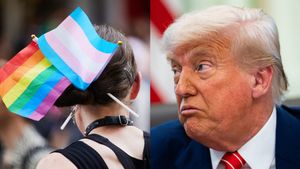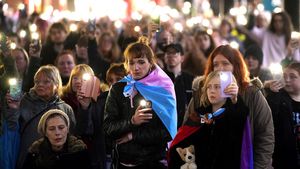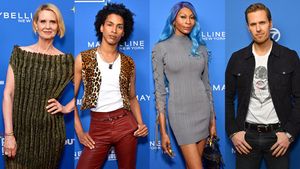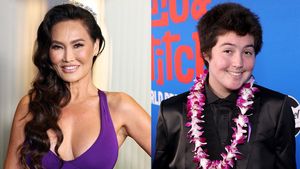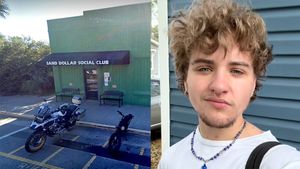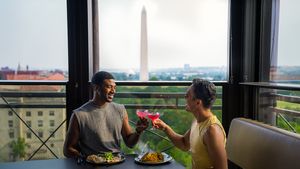Everyone agrees on some basic facts about the case of a gay man who took a beating in a Walmart parking lot in Corinth, Miss., but they don't agree on the motivation. Can a hate crime occur when it involves two LGBT people? Does it fit the legal parameters of a hate crime?
James Scott admits he physically attacked Devin Norman, who then posted a disturbing photo of himself on social media with two swollen black eyes. Scott was arrested, and Norman called it a hate crime.
Scott, on the other hand, said he feared being outed by Norman and has subsequently identified himself as bisexual, which he points to as proof the attack cannot be a hate crime. He claimed Norman threatened to post photos of Scott online that the two had exchanged before meeting.
Violence motivated by the victim's sexual orientation is not a hate crime under Mississippi law, but it is under federal law, and the beating that resulted in those black eyes and a broken cheekbone is under a federal investigation.
Some within the vocal LGBT crowd blame Norman, the victim, for "provoking" the assailant. Others argue that Scott was justified in protecting himself from a public outing, even if he resorted to extreme measures.
Norman says he was attacked because of his sexual orientation. I think Norman is correct on that issue. Scott wanted to have it both ways. He wanted to participate in some same-sex interaction without publicly associating with Norman, who was not trying to hide his own identity.
Scott risked his privacy by exchanging photographs and texts with someone who was not closeted. Now he wants to use a "get out of trouble I'm gay card" to deflect more serious charges of a hate crime and possibly harsher punishment.
Although we in the United States are a population of LGBT people, we aren't truly a community in the sense of bonding through shared experiences, agreement on issues, or having each other's best interests in mind. Some of us live in a public manner, choosing not to cloak our identity or relationships. Some pass as part of the heteronormative majority and choose not to correct that impression for various reasons, including personal safety and job security.
Others of us are more obviously not gender-conformant in our appearance or mannerisms and have little choice about standing out from the cultural and societal norm.
Although we are from all races and ethnicities, socio-economic classes, religious and spiritual practices (or lack thereof), levels of education, and geographic locations; still, we can choose to work together against all kinds of hatred among our populace. A form of hate exists within LGBT circles whenever one person disassociates from another through disrespect of their inherent personal value. In Scott's situation, what began as fear and anger manifested in his violence toward Norman.
Rejecting the queerness within oneself as well as others is also known as internalized homophobia, and it is dangerous in its many forms.
When one's publicly stated desire is not to be compared with others who somehow flaunt their difference -- as Scott has insinuated -- intolerance is at the root of it. I've seen lesbians who do not want to associate with masculine-appearing women. I've seen a more rugged or muscular gay man proposition a less masculine-appearing gay man with the condition that they're never seen together in public. Whenever a gay person refuses to accept one's own variance from the societal norm, self-loathing is evident.
Even though LGBT acceptance has increased with marriage equality, out celebrities, and the increase in open and affirming churches and synagogues, we have not adequately addressed our part in the hateful rhetoric and abuse. As we now face the backlash of "religious liberty" laws that discriminate, we must also look within and among ourselves.
DEBRA REAGAN is a freelance writer, editor, speaker, and independent scholar who focuses on the intersections of gender, race/ethnicity, socio-economic class, sexuality, and spirituality. She blogs at Bodies Out of Place.




